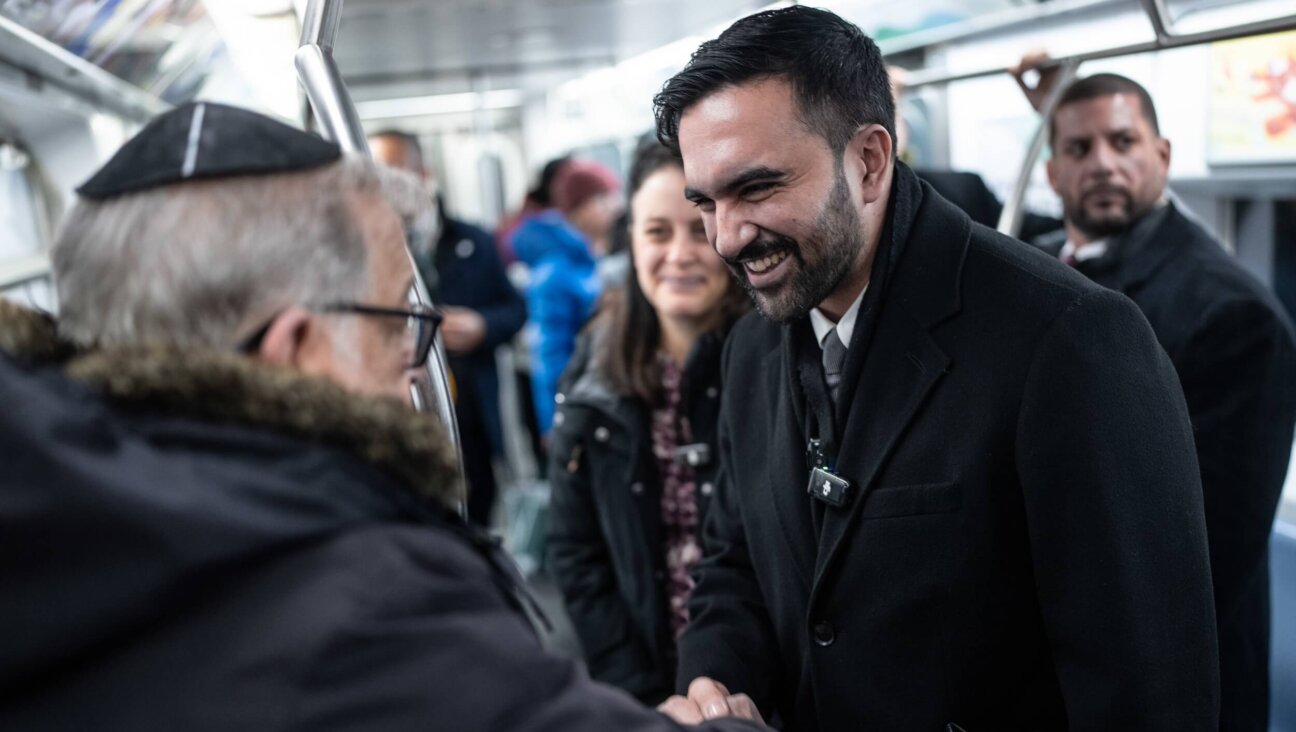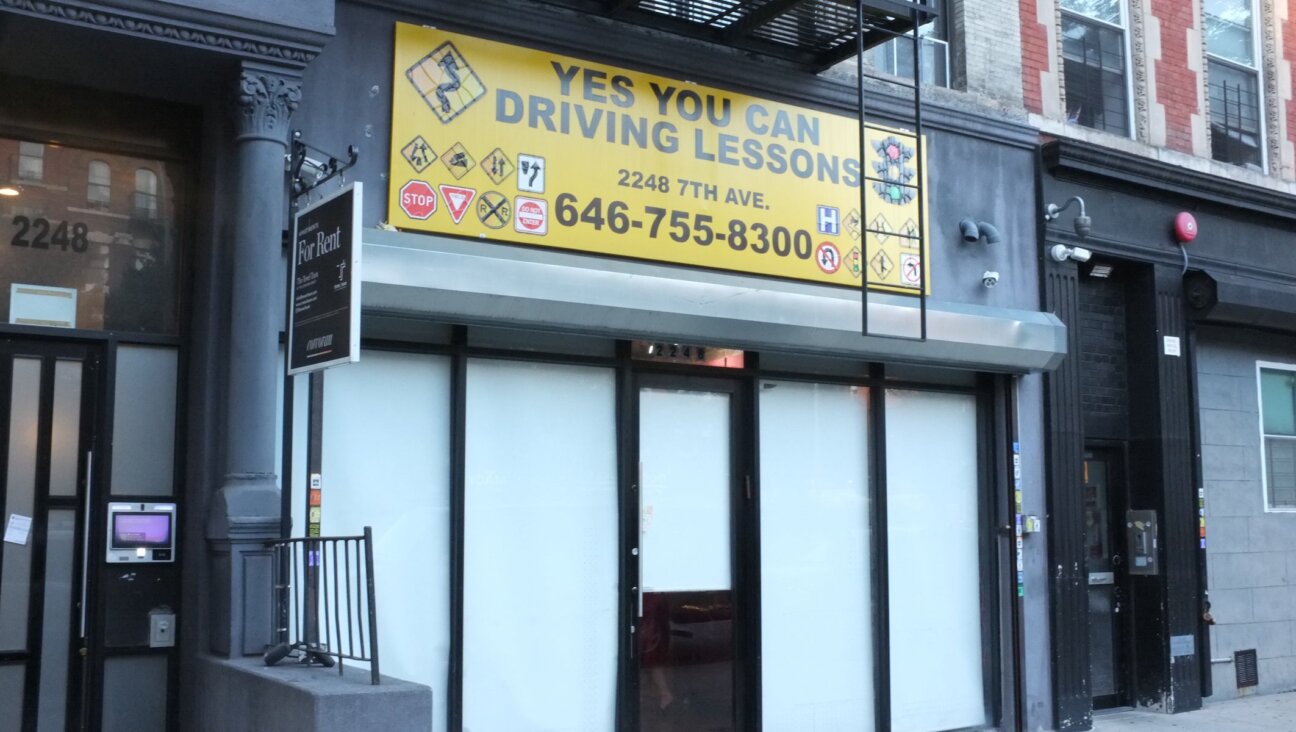My kids feel betrayed by their Israel education. How do I help them care about both the Jewish homeland and Palestinian rights?

By Liana Finck
“A Bintel Brief,” the Forward’s signature advice column, is now a podcast hosted by Ginna Green and Lynn Harris. Listen to the latest episode here (or wherever you get your podcasts), and click here to sign up for a weekly newsletter with backstories from the hosts. Need advice? Email [email protected], or leave a voicemail at (201-) 540-9728.
Dear Bintel,
I’m the mother of two kids who are now in high school and college, respectively. We sent them to Jewish camp, and now that they’re older, they say we and the camp lied to them about Israel.
I suppose I have sinned by omission. Israel’s government and treatment of its non-Jewish population make me very uncomfortable. But I also see Israel as the Jewish Homeland. And I grew up in a time when support for Israel — while also complaining about Israel — was a given.
Now what?
Signed,
Unhappy Camper
Dear Unhappy Camper,
Well, this one’s easy. Just kidding.
There are a lot of people in that bunk with you, Unhappy Camper. You’re not at all alone in believing that Israel is the Jewish homeland in its modern incarnation and that it does many things right — and also believing that it does some things wrong. And you’re definitely not alone in finding that your teenage children see Israel and its conflict with the Palestinians very differently than you or your parents did, and struggling to talk through those divides.
A lot of people go to camp — or other hallmarks of the Jewish youth experience, like day school, Hebrew school or youth groups where cultivating a connection to Israel as a nation-state for the Jewish people is high on the agenda, and the stories, facts and narratives shared in those spaces are usually from the Israeli-Jewish point of view. When those young people enter the larger world and are exposed to different stories, different facts and different narratives, many of them feel, quite frankly, that they’ve been lied to about everything: the land, the state, the people, the conflict, you name it.
So Unhappy Camper, your letter addresses a very universal concern for many Jewish parents.
How do we talk about Israel? How do we talk about “homeland”? How do we talk about a region that is also a homeland for other people? How do we not let our kids down? How do we keep them from feeling we have let them down?
And we love how you ended your letter to us: Now what? What you’re really asking is, how do we move forward from here? As opposed to, how do we fix whatever mistakes we have already made?
If Jewish peoplehood is important, caring about Israel should also be important, no matter your opinion on the nuances of the Palestinian conflict. There are ways to stay engaged with Israel while remaining critical. If you’re able, you might consider trying to travel to Israel together with your kids.
On our podcast, we speak with Yona Shem-Tov and Leah Solomon of Encounter Programs who offer trips to Jewish lay leaders. Trips that widen the aperture on Israel and the conflict might help your kids recover from this feeling of betrayal and figure out how they can channel those feelings into positive engagement and action.
While your letter is about your own family, it highlights a large issue. That it’s time for us as a community to bring a little bit of loving critique and self-assessment to how we have succeeded and how we might have failed — or have room for improvement — in our teaching about the Israeli-Palestinian conflict from a systems perspective.

Often what we’re talking about when we talk about Israel is our anxieties about Jewish identity writ large. What are we afraid of as a Jewish community? What do we fear will happen if we start having honest, transparent, real conversations about our past and present — and how will they shape our future?
We encourage you not to throw up your hands, but to triple down and lean in.
When it comes to Israel education, if we want the next generation to be invested in Jewish community — let alone Israel — we need to actually embrace challenging topics. Grappling with those challenges requires confronting the big questions related to Israel. What does it mean to be sovereign? Who has status and say? How do you reconcile religion and state? Et cetera, et cetera.
You’re not alone. Your familial problem is part of a systems problem, and everything that you think you need to do, we all need to do.
Thankfully, there are many possibilities for courageous conversations and leading our Jewish future to a place of connection to and appreciation of Israel with literacy and with love. And one of those courageous conversations can happen in your own home.
A conversation that’s based on shared values, and in particular, shared Jewish values, because they’re obviously at play here. Otherwise, your kids would not care. So hang on to that, continue the conversation, and let us know how it goes.
Good luck!
Bintel
To hear more of our advice to Unhappy Camper, download the latest episode of “A Bintel Brief: The Jewish advice podcast” here or on any podcast platform. Send your dilemmas about Jewish-American life, identity, culture, politics or your personal hopes and dreams to [email protected], or leave a voicemail at (201-) 540-9728.


















